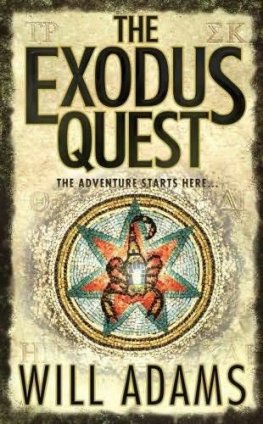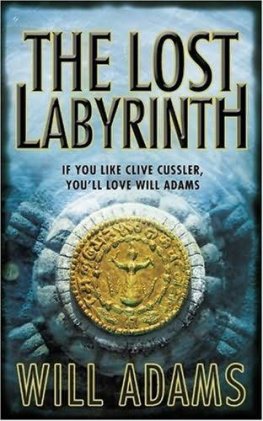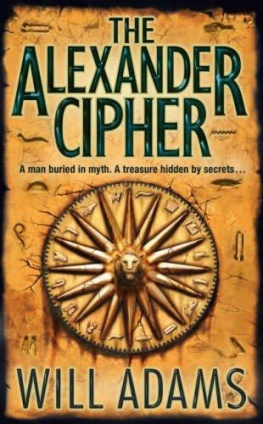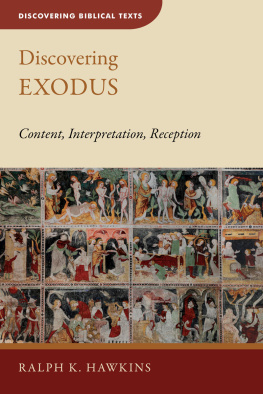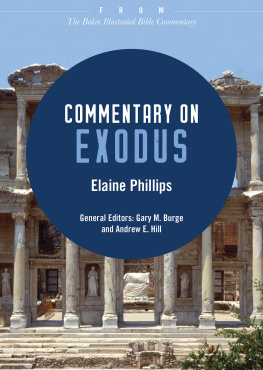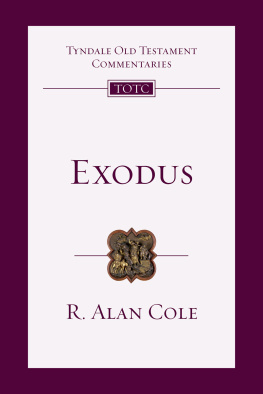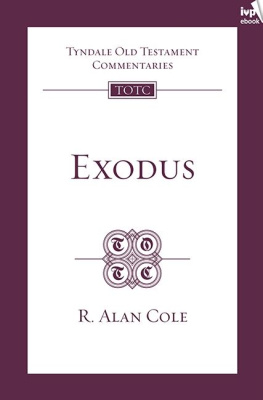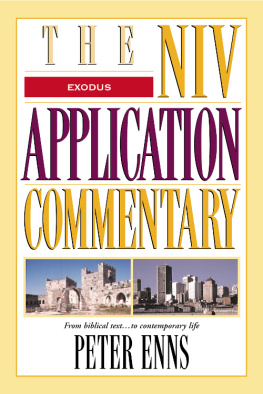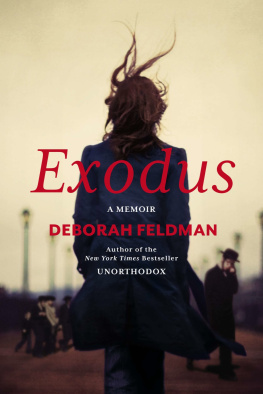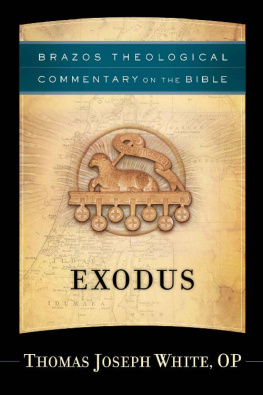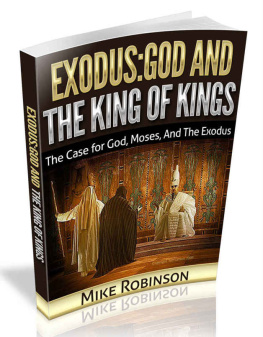Will Adams - The Exodus Quest
Here you can read online Will Adams - The Exodus Quest full text of the book (entire story) in english for free. Download pdf and epub, get meaning, cover and reviews about this ebook. genre: Adventure. Description of the work, (preface) as well as reviews are available. Best literature library LitArk.com created for fans of good reading and offers a wide selection of genres:
Romance novel
Science fiction
Adventure
Detective
Science
History
Home and family
Prose
Art
Politics
Computer
Non-fiction
Religion
Business
Children
Humor
Choose a favorite category and find really read worthwhile books. Enjoy immersion in the world of imagination, feel the emotions of the characters or learn something new for yourself, make an fascinating discovery.
- Book:The Exodus Quest
- Author:
- Genre:
- Rating:5 / 5
- Favourites:Add to favourites
- Your mark:
- 100
- 1
- 2
- 3
- 4
- 5
The Exodus Quest: summary, description and annotation
We offer to read an annotation, description, summary or preface (depends on what the author of the book "The Exodus Quest" wrote himself). If you haven't found the necessary information about the book — write in the comments, we will try to find it.
The Exodus Quest — read online for free the complete book (whole text) full work
Below is the text of the book, divided by pages. System saving the place of the last page read, allows you to conveniently read the book "The Exodus Quest" online for free, without having to search again every time where you left off. Put a bookmark, and you can go to the page where you finished reading at any time.
Font size:
Interval:
Bookmark:
Will Adams
The Exodus Quest
PROLOGUE
The southern shore of Lake Mariut, AD 415
The plaster had dried at last. Marcus scooped up handfuls of dirt and sand from the floor, smeared them across the fresh white surface until it was dulled and dark and virtually indistinguishable from the rest of the wall. He held his oil lamp close to examine it, added more dirt where needed until satisfied, though in truth it needed the eyes of a younger man. A last walk through the old, familiar passages and chambers, bidding farewell to his comrades and ancestors in the catacombs, to a lifetime of memories, then up the steps and out.
Late afternoon already. No time to waste.
He closed the wooden hatch, shovelled sand and stone down on it. The crash and scatter as it landed, the swish of robes, the crunch of his iron-shod spade. He began to hear in these noises the distant chanting of a mob. It grew so strong, so convincing, he paused to listen. But now there was only silence, save for his heavy breathing, the hammer of his heart, the trickle of settling sand.
Nothing but the fears of a solitary old man.
The sun was low in the west, tinting orange. They usually came by night, as evildoers will, though they were growing bolder all the time. He'd seen strange faces in the harbour that morning. One-time friends muttering amongst themselves. People whose diseases he'd treated without thought for his own safety looking at him like contagion.
He began to shovel again, faster and faster, to quell the panic before it could overwhelm him.
He'd thought they'd be able to ride it out. Their community had survived many previous pogroms and wars, after all. He'd imagined, foolishly, that their ideas would prevail in the end because they were so much stronger and more rational than the pious cruel nonsense of the so-called right-thinking. But he'd been wrong. It was human nature, when fears were stirred, that reason lost all power.
Poor Hypatia! That beautiful, wise and gentle woman. They said her lynching had been ordered by Pope Cyril himself. Epiphanes had witnessed the whole thing. A mere boy; too young for such a sight. The mob led by that sanctimonious monster Peter the Reader. No surprise there. They'd torn her from her chariot, stripped her naked, dragged her to their church, cut her flesh from her bones with oyster-shells, then burned her remains.
Men of God they called themselves. How was it possible they couldn't see what they truly were?
The sun had set. The night began to cool. His pace slowed. He was far from the prime of youth. But he didn't stop altogether. The quicker he finished, the quicker he could set off, catch up his family and fellows in their quest for sanctuary near Hermopolis or perhaps even Chenoboskion, depending on how far this madness had spread. He'd sent them on ahead with all the scrolls and other treasured possessions they'd been able to carry, the accumulated wisdom of centuries. But he himself had stayed behind. They'd grown lax these past few years. It was no secret they had an underground complex here, he knew; not least because absurd rumours about their wealth and hidden treasures had found their way back to him. If these villains looked hard and long enough, they'd every chance of finding these steps, however well he buried them. That was why he'd plastered up the entrance to the baptism chamber, so that some small fraction of their knowledge might survive even if the underground complex itself was discovered. And maybe one day sanity would return, and they could too. If not himself, then his children or grandchildren. And if not them, then perhaps the people of a future age. A more rational, enlightened age. Maybe they'd appreciate the wisdom of the walls, not hate and vilify it.
He finished filling in the shaft, trod it down until it was hard to see. Time to go. The prospect dismayed him. He was too old for such adventures, too old to start again. All he'd ever sought in life was the peace in which to study his texts, learn the nature of the world. But that was now denied him by these swaggering cruel bullies who'd made it a sin even to think. You could see it in their eyes, the pleasure they took in the wanton exercise of their power. They wallowed in their villainy. They raised their hands up high as though the blood on them shone like virtue.
He was travelling light, just his robes, a small sack of provisions, a few coins in his purse. But he hadn't walked ten minutes before he saw a glow over the ridge ahead. It meant nothing to him at first, too lost in private thoughts. But then he realized. Torches. Approaching from the harbour. The direction of the breeze changed and then he heard them. Men and women shouting, singing, jubilant in the anticipation of another lynching.
He hurried back the way he'd come, his heart pounding. Their settlement was on a gentle hill overlooking the lake. He reached the crown and saw the glow on every side, like a pyre just lit, flames licking up the tinder. A cry to his right. A rooftop began to blaze. A second and then a third. Their homes! Their lives! The clamour grew louder, closer. That hateful baying! How these people loved their work. He turned this way and that, seeking a path out, but everywhere he went, torches forced him back, penning him into an ever-smaller space.
The cry went up at last. He'd been seen. He turned and fled, but his old legs weren't up to it, even though he knew the penalty of capture. And then they were all around him, their faces enflamed with bloodlust, and there was nothing more he could do save go with dignity and courage, try to shame them into compassion. Or, failing that, perhaps when they woke in the morning, they'd look back on their work this night with such horror and revulsion that others might be spared.
That would be something.
He fell to his knees on the rocky ground, his whole body trembling uncontrollably. Tears streamed down his cheeks. He began to pray.
ONE
I
Bab Sedra Street, Alexandria Daniel Knox was walking north along Sharia Bab Sedra when he saw the earthenware bowl on the street-trader's flapped-out tablecloth. It was filled with matchbooks and packets of white napkins, and it was propping up one end of a line of battered Arabic schoolbooks. His heart gave a little flutter; he suffered a moment's deja vu. He'd seen one like it before, he was sure of it. Somewhere interesting, too. For a few seconds he almost had the answer, but then it eluded him, and the feeling slowly faded, leaving him merely uneasy, unsure whether his mind was playing tricks.
He paused, crouched, picked up a garish plastic vase with wilting artificial yellow flowers, then a ragged geography textbook with all its pages falling out, so that out-of-date maps of Egypt's topography and demographics fanned out over the tablecloth like a deck of cards swept by a magician's hand.
'Salaam alekum,' nodded the trader. He couldn't have been more than fifteen years old, made to look even younger by hand-me-down clothes at least two sizes too big.
'Wa alekum es salaam,' replied Knox.
'You like this book, mister? You want to buy?'
Knox shrugged and put it back, then glanced around as though uninterested in anything he saw. But the young hawker only gave a crooked-toothed smile. He wasn't a fool. Knox grinned self-deprecatingly and touched the earthenware bowl with his finger. 'What's this?' he asked.
'Sir has a fine eye,' he said. 'A wonderful antique from Alexandria's rich history. The fruit bowl of Alexander the Great himself! Yes! Alexander the Great! No word of a lie.'
'Alexander the Great?' said Knox. 'Surely not?'
'No word of a lie,' insisted the young man. 'They find his body, you know. They find this in his tomb! Yes! The man who find Alexander, he is a man called Daniel Knox, he is my very good friend, he give this to me himself!'
Font size:
Interval:
Bookmark:
Similar books «The Exodus Quest»
Look at similar books to The Exodus Quest. We have selected literature similar in name and meaning in the hope of providing readers with more options to find new, interesting, not yet read works.
Discussion, reviews of the book The Exodus Quest and just readers' own opinions. Leave your comments, write what you think about the work, its meaning or the main characters. Specify what exactly you liked and what you didn't like, and why you think so.

